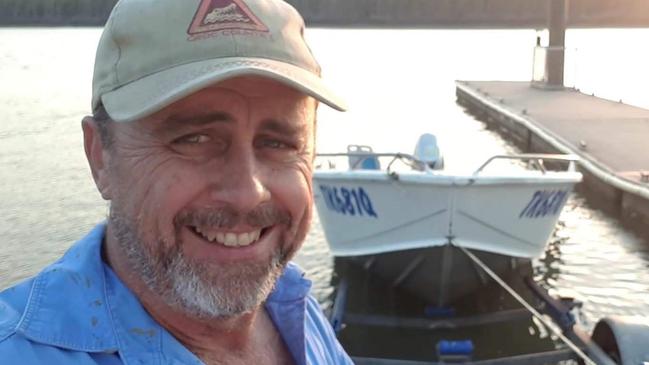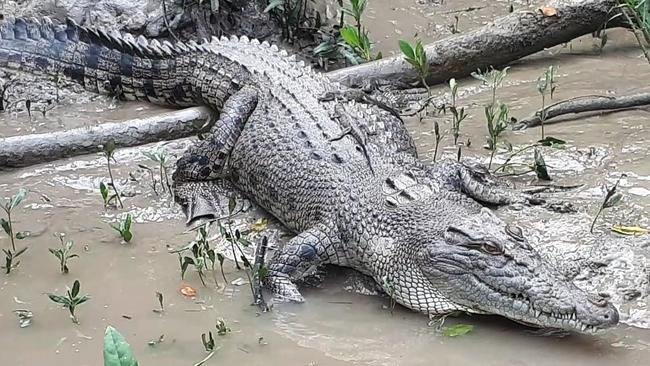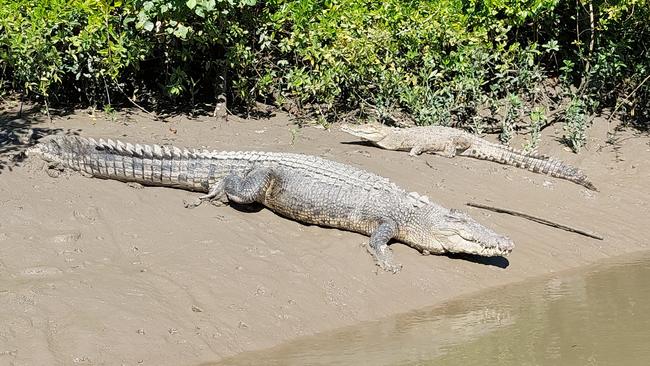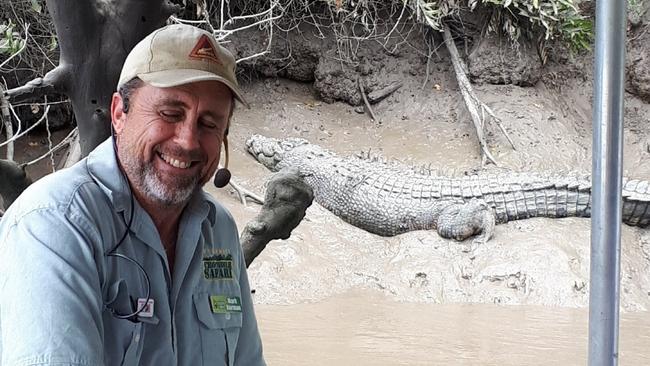Proserpine River crocodile safari guide says safety precautions prevent attacks on humans
An experienced tour guide has set the record straight on crocodiles in the Proserpine River, following recent reports of fishermen fearing for their lives in the thriving croc habitat.

Whitsunday
Don't miss out on the headlines from Whitsunday. Followed categories will be added to My News.
A professional wildlife guide who has led tours in north Queensland for almost 20 years says the Proserpine River has a great safety record, and it is up to us humans to keep it that way.
Despite recent reports of fishermen fearing for their lives in the thriving saltwater crocodile habitat, Mark Norman is confident the Proserpine River has “never had a crocodile attack” in his time involved with crocodile safaris, which stretches back to 2003, and says safety precautions can prevent future incidents.
Mr Norman confirmed the popular fishing spot maintains a large population of the carnivorous reptiles, with recent surveys indicating an adult population of 150-200, the largest specimens measuring five metres in length.
Add in the juveniles, and Mr Norman said it became much harder to determine the exact amount – but it was safe to say, it was a lot.
“It’s the number one crocodile system on the east coast of Queensland and one of the top breeding systems in the whole state,” Mr Norman said. “And that hasn’t changed much in the past few years – it’s remained fairly stable.”

Crocs flock to Proserpine because it provides an ideal nesting environment, good food supplies including barramundi, and the appealing combination of a large flood plain and freshwater wetlands system joining up with a tidal zone.
Fish, crabs, and birds make up the majority of their diet, along with mammals – a category humans “can fall into if they’re not careful”, Mr Norman said.
The key to staying safe on the Proserpine River, he said, was to make like the locals and respect safety warnings by staying out of the water and away from the water’s edge, and never attempting to feed a crocodile.
“There’s never a safe time to go near a crocodile, so it all comes down to how you present yourself in croc country,” Mr Norman said.
“You don’t want it to see you as a target, so you must obey the guidelines: don’t get in the water, be careful hanging out the side of your boat, and do not feed them, especially in public areas.”

For boaties, it was also important to get to know the unique features of the river, to avoid running into trouble like some unlucky visitors have.
“It pays to be prepared and familiar with your surroundings and where the hazards could be – things like sandbars, structures, shallow points, the main channels, and the potential problems they can present,” Mr Norman said.
“If you conduct yourself in a safe manner, maintaining a ‘croc-wise’ approach, you shouldn’t have too many problems,” he said.

Emphasising the need for vigilance and common sense in known crocodile habitats, Mr Norman said a healthy croc population should be celebrated as a sign of a healthy river system.
“It shows the fish are in good shape when the apex predator’s doing well – they’re a very integral part of the system out there.”
He ruled out introducing tighter restrictions on boating and fishing on the river, and was also against the idea of culling.
“There’s nothing wrong with what‘s happening now,” Mr Norman said.
“We’ve got a very healthy croc system and a good population of local people who use the river who understand that.
“We do have a lot of people coming here on holidays, bringing boats, that are unfamiliar with the area, but thankfully most people understand when they get to a river in Northern Australia and there’s crocodile warning signs at the boat ramp, they approach with that in mind.”



